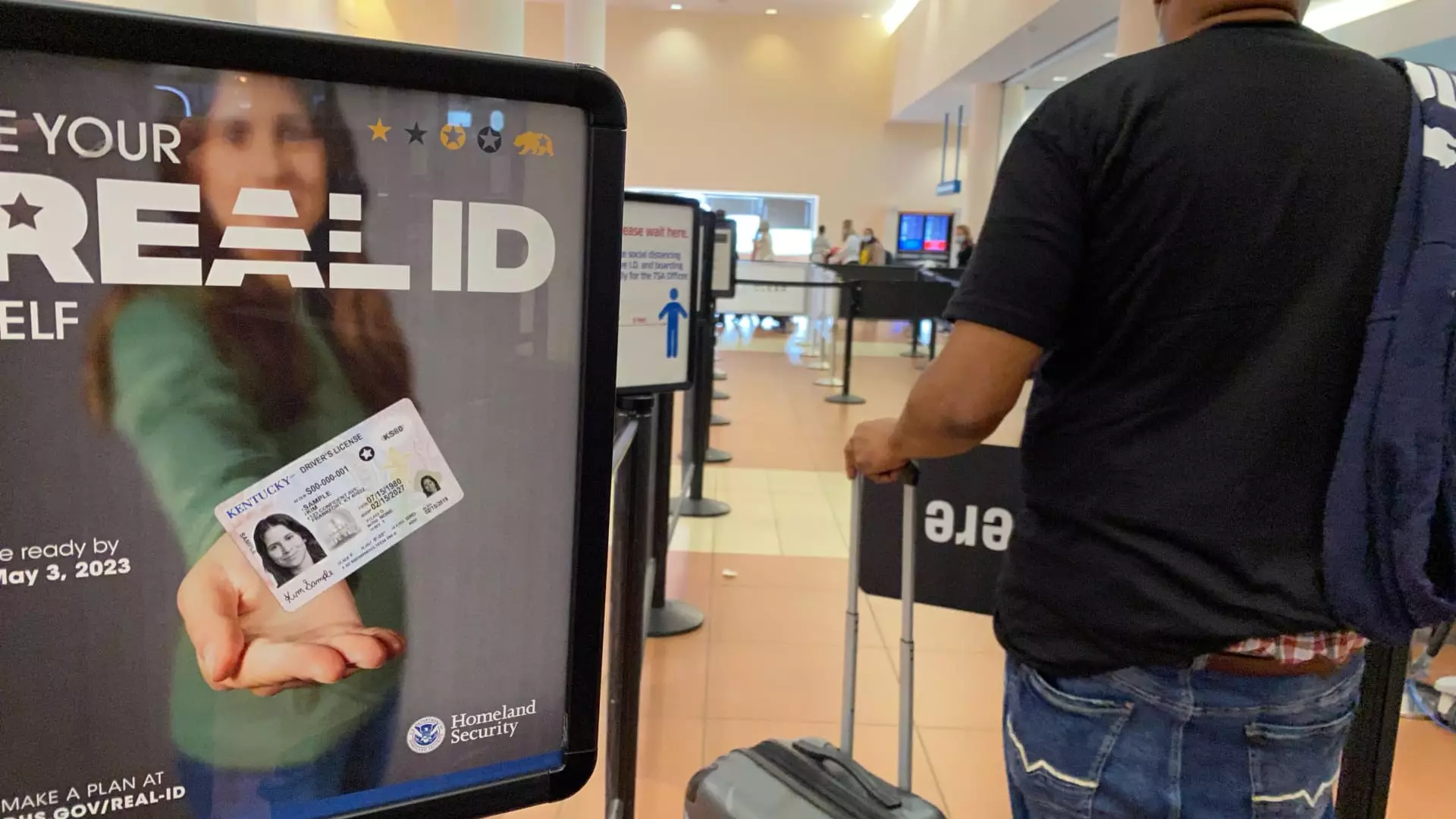7 Alarming Realities About the REAL ID Deadline You Need to Know

As society rapidly evolves, so too must our identification systems. With the impending enforcement of the Real ID requirements at U.S. airports starting May 7, it’s crucial to pay attention. For those planning to fly domestically, failing to comply could mean an infuriating delay – or worse, being barred from boarding your flight altogether. The Transportation Security Administration (TSA) has affirmed that if you do not possess a Real ID-compliant form of identification by the deadline, you’re at risk of significant inconvenience.
Here lies the problem: around 19% of travelers may find themselves suddenly unprepared. This statistic indicates a shocking gap in public awareness and preparation, despite years of warnings from federal and state agencies. Are Americans really paying enough attention to this critical change that impacts their freedom of movement? This abysmal lack of foresight reflects a broader trend of complacency in the face of impending legislation.
Disrupting Your Travel Plans
Imagine rushing to the airport, luggage in tow, only to hit a wall of disappointment at the security checkpoint. The TSA has made it crystal clear that if your ID isn’t compliant with Real ID standards, you will be subjected to additional checks, prolonged verification processes, or even banned from passing through the gates. For those who have experienced it firsthand, the angst of missing a flight due to bureaucratic pitfalls is all too familiar.
John Essig, the TSA’s federal security director, has urged travelers to make appointments with their local motor vehicle departments as soon as possible. Unfortunately, people are now scrambling, but many state agencies are overwhelmed with the demand, leading to appointment shortages. This scenario raises alarming questions: Why are states not better prepared to meet the needs of their constituents? Is it a lack of foresight by government agencies, or is it a testament to the inefficiencies of our state systems?
The Redundant Delays of Bureaucracy
The Real ID Act was passed in 2005, meant to bolster security by standardizing identification cards in the aftermath of 9/11. Yet here we are, more than a decade later, and the rollout has been laced with incessant delays and pushbacks. The initiative was supposed to be operational in 2008, but repeated postponements, including those influenced by the pandemic, have merely muddied the waters. It’s as if the government is asking citizens to simply accept the bureaucratic delays as a new norm, rather than forcing accountability.
It’s vital to acknowledge the dual-edged sword of increased security measures intertwined with citizen frustration. On one side, we have the protective measures designed to thwart threats against the nation; on the other, we endure the trials these measures impose on the everyday citizen. The irony is painfully apparent: such measures aim to eliminate threats but may inadvertently become threats to personal liberties (and your travel plans).
Real ID vs. Alternative Identification
What makes the Real ID both imperative and perplexing is its compliance criteria. Travelers require either a Real ID-compliant license or a U.S. passport — but that wasn’t always clear, and confusion remains rampant. Many have asked: why is the government not more transparent about alternatives like the permanently resident card or Trusted Traveler ID? The options are there, but the communication is lacking.
The Department of Homeland Security has publicly stated the importance of these identifiers. However, is forcing citizens to navigate a maze of regulations really the answer? Shouldn’t better dialogue between authorities and citizens be the priority? Instead of propelling into inconvenience, why not work towards creating a fluid identification system that accommodates the modern citizen?
The Underlying Issue: A Distrustful System
Ultimately, the enforcement of the Real ID will likely shake the foundations of trust between government agencies and citizens. The charge against our personal liberties comes under the guise of national security. As they clamor for compliance, agencies must recognize that these measures may establish a division rather than unity. Are we supposed to blindly accept that each measure is truly in our best interest?
As Americans, the time has come to question: Is increased security at the price of our convenience worth it? While security is undoubtedly paramount, an increased level of accountability should be demanded from governing bodies responsible for our freedoms. We must be vigilant not only about our preparation for travel but also about ensuring that while we comply, we hold them accountable to improve, rather than just chronicle our misery.





